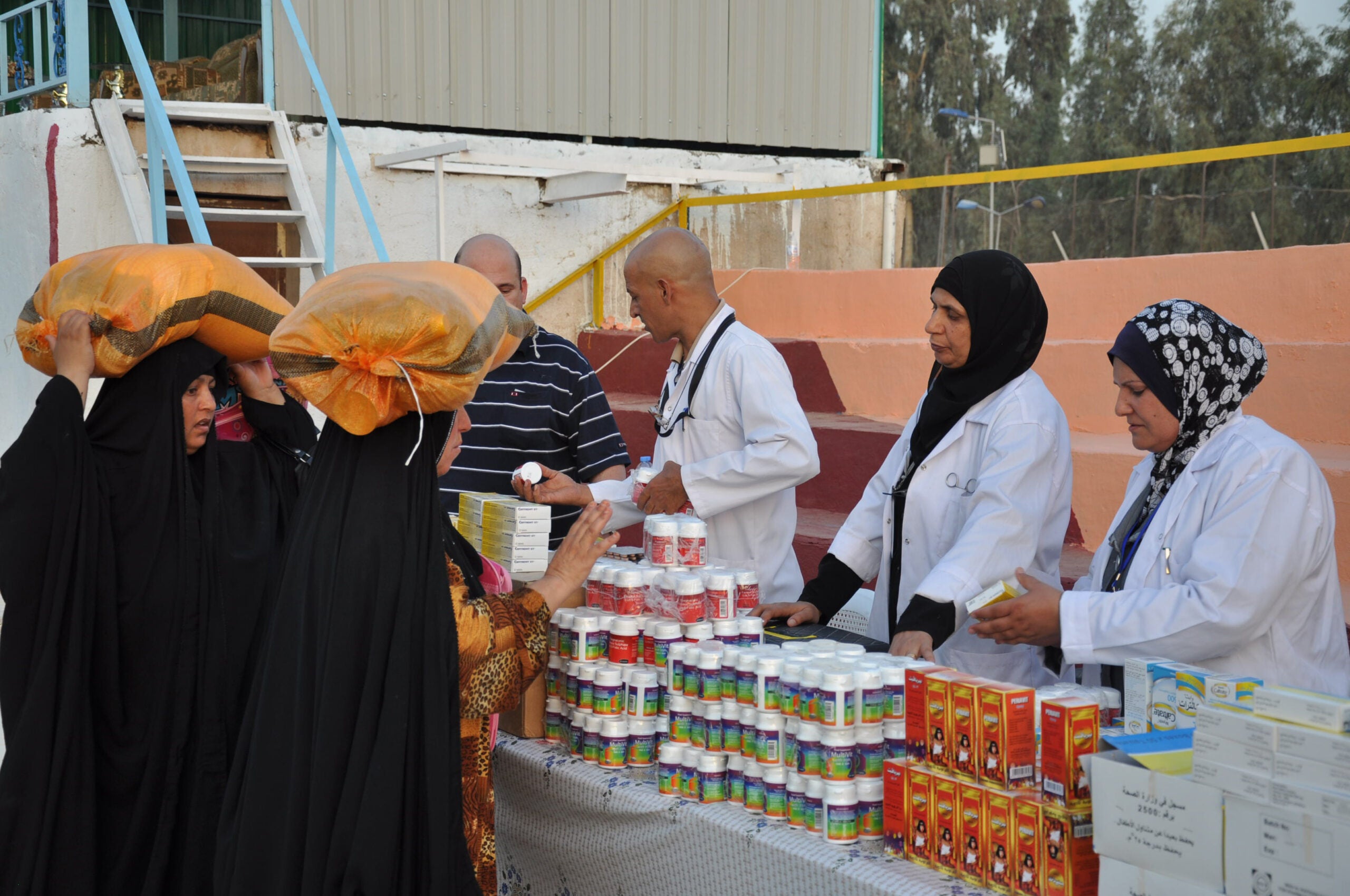Religious literacy: Critical for both secular and faith-inspired humanitarian INGOs

Iraqi medical professionals evaluate civilians and distribute medication at a humanitarian aid distribution at Joint Security Station Deason in Baghdad, Iraq, in 2011. Photo by U.S. Army.
Both secular and faith-inspired international humanitarian organizations would benefit from a higher level of religious literacy to understand the religious dimensions of the contexts in which they work, concludes a new report by researchers from Oxfam and the Religious Literacy Project at Harvard Divinity School.
The findings in the report are the result of a months-long scoping research project funded by the Henry Luce Foundation. It examined how international non-governmental organizations (INGOs) like Oxfam, CARE, Catholic Relief Services, Islamic Relief, and others engage with local religious groups and religion in their work promoting leadership of humanitarian action by local and national humanitarian actors in crisis-affected countries.
The authors concluded that “a greater level of religious literacy would benefit humanitarian INGOs in all of their work, both in direct implementation, partnerships with local actors, and work to support and promote the capacity and leadership of such actors.”
“This report affirms the importance of better literacy about religion for those engaged in humanitarian action in diverse contexts,” said Diane L. Moore, director of the Religious Literacy Project and one of the report’s authors. “Individuals from both secular and faith-inspired organizations indicate that a better understanding of how religions function in local contexts will deepen their cultural competence and enhance their abilities to support local humanitarian leadership. We at the Religious Literacy Project look forward to collaborating with Oxfam and others to develop useful resources and pilot training modules in response to this scoping report.”




